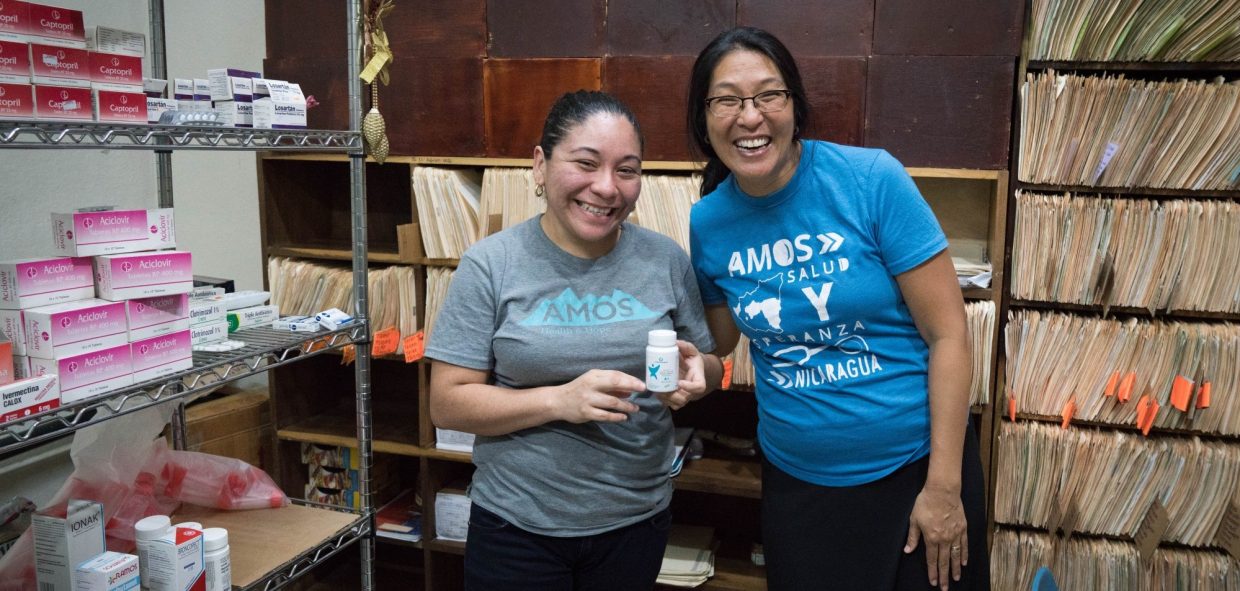
Dr. Laura Parajón (pictured above on the right) runs AMOS Health & Hope out of Managua, Nicaragua’s capital and largest city. But when we spoke to her by video conference, she answered the call from Antigua, Guatemala where she was attending a USAID conference.
Recently, Nicaragua has been experiencing civil unrest, and the AMOS team had to scale back some of their efforts temporarily to keep their staff safe, but are now back normal operations. “Civil unrest is difficult because while amazing organizations like Vitamin Angels provide us with the commodities we need to get out to thecommunities, the staff also need support to get out there to deliver the commodities. The political and economic crisis is making it more difficult and costly for us to deliver medicines to the people who need them the most—and that’s what is sad.”
But if anything, times of unrest highlight the sustainable impact of AMOS Health & Hope’s work. The health-based nonprofit and Vitamin Angels field partner seek to improve medical care and health practices in impoverished parts of Nicaragua, working closely with health workers, or promotores, from each community they serve. The health workers are elected by their neighbors and highly respected within their communities.
“Health promoters are people with a third or fourth grade level of education, but who have a huge commitment to their communities,” Dr. Parajón shared. “Our primary health care teams (doctors and nurses) go out to remote communities in a four-wheel-drive vehicle that is needed because the roads are so rough. Our teams provide support and training, so the health workers can provide basic healthcare services for their communities.” Building self-sufficient programs and developing rapport within multiple communities is a long-term investment. Dr. Parajón and her team have allocated many hours and resources not only to travel to those areas, but also to train, periodically check in with the health workers, and replenish supplies. While times of turmoil threaten the team’s ability to make these trips, Dr. Parajón is confident in the health workers’ preparedness to address a wide range of health issues.
“Every promoter gets trained to deal with the most common causes of child death, like diarrhea, pneumonia, and fever. They’re trained in very simple health protocols that we adapted from international health standards,” she said. Anything beyond their scope of knowledge, she added, prompts them to engage the designated community health committee, which helps transport patients to hospitals or clinics.
“The most important thing is training them to do the things they can do well, and training them to know when to refer someone who is in danger,” she said. “The things they actually have to do to save a life.”
They help nurture new lives, too. AMOS-trained workers are taught how to confirm pregnancies and set up expecting mothers in the health system so that they receive prenatal multivitamins and care. Promotores are also qualified to carry out health visits with pregnant mothers.
“The prenatal multivitamins go to every single one of our communities, and because the vitamins are easier on the stomach, people love them. Now we can provide Vitamin Angels prenatals to all our communities,” Dr. Parajón said. Just as impactful, she added, are the deworming tablets provided by Vitamin Angels.
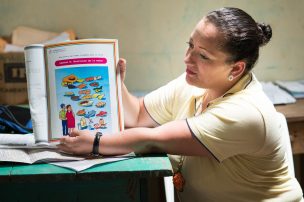
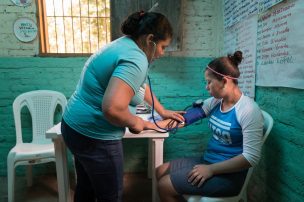
“We had these concrete needs that we got from data from 2008 when we did a large parasite prevalence study and found that up to 90% of all children in the rural areas [we studied] had a type of parasite that can only be treated with albendazole,” she recalled. “So we were able to identify that we needed a ton of albendazole, especially in moist, rainy areas.” Although they’re working on securing funding for a follow-up study in the near future, “We already have evidence that proves that it improves your health and nutritional status,” she said. “We know that’s the treatment for this type of parasite prevalence.”
For Dr. Parajón, whose background as an ESL teacher inspired her to start AMOS alongside her husband and her father-in-law, the simple accessibility to deworming tablets, prenatal multivitamins, and other fundamental resources is crucial to long-lasting changes.
“I went into medicine because I used to be a teacher, and I saw that all my patients who were immigrants or refugees at the time had difficulty accessing healthcare,” she said. “If we’re looking at how we improve health, in terms of quality of life—where you live, how you live, your environmental conditions, socioeconomic conditions—all those things have a lot more to do with health than just your access to care. That’s why, at AMOS, we’re also looking at social determinants of health. What kind of social support are people getting? How are we addressing the global, integral health care of a person, and linking them to services? How are we helping people not just to survive, but to really thrive?”
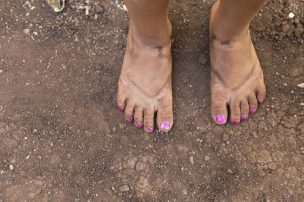
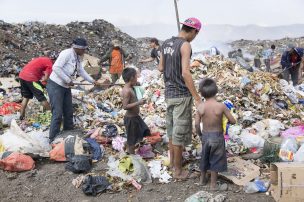
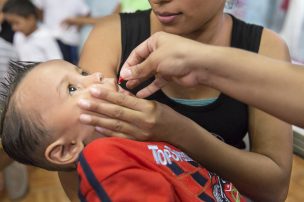
By asking questions like these, she hopes to uphold AMOS as “a learning organization, where part of its DNA is listening to the communities, working with them to collect data, then reflecting on it together and taking action.” Of course, the actual community members comprise a significant part of the organization’s DNA as well. And their dedication, Dr. Parajón noted, inspires her to continue her life’s work every day.
“One promoter is from one of our remote communities. And when they chose her to be a health worker, her husband told her that he’d leave her. She was just supposed to cook and clean for him.” The memory made Dr. Parajón pause. “But she decided to be a promoter because babies were dying in the community. She saved so many lives—but at a high personal cost, because her husband did leave her.”
It’s that sort of passion, and the commitment of so many around her, that inspires Dr. Parajón to keep going, whether she’s leading the charge from the AMOS headquarters, in the field with her team, or operating from a makeshift office anywhere in the world. “[They] inspire me to say, ‘This is what I want to do.’ So every mom and every girl has a chance to do what they choose to do, and not have other things prevent them from reaching their dreams.”
“At the end of the day, we’re reducing health inequities. It’s about fostering peace and love and hope for people in a systematic way that comes with concrete outcomes. Whatever it is we’re doing, we’re trying to share a model of how we can collaborate as partners to make a big difference wherever we are.”
She smiled. “That’s what I want to work for, whether it’s in health or somewhere else. That any person, no matter where they are, has a chance for an abundant life.”
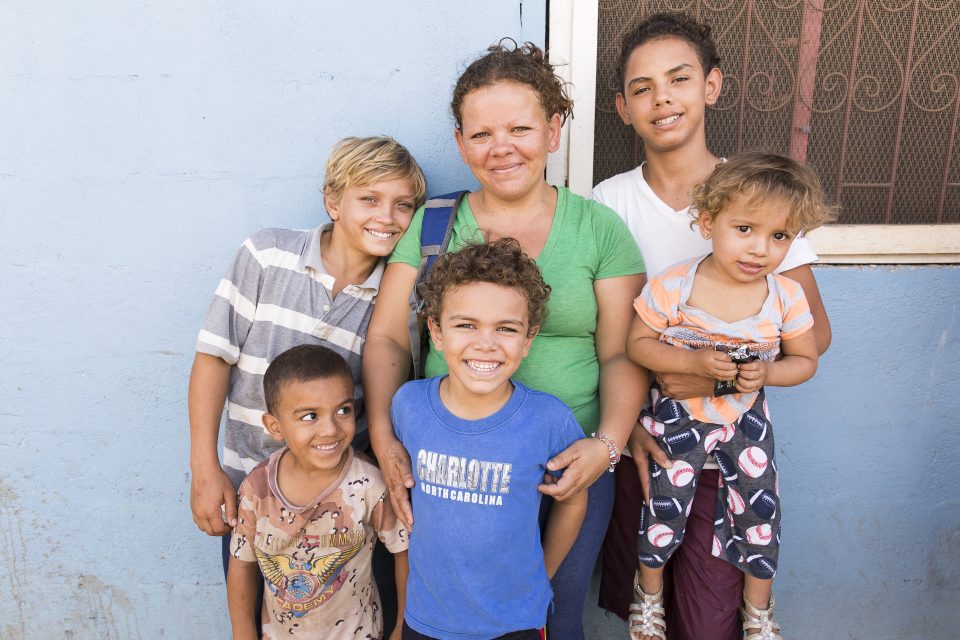
Help us reach more partners like Amos

